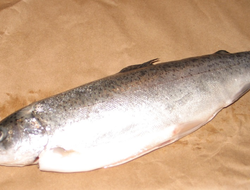Fat: Essentially for health
Published: June 05, 2020
Fat is a macronutrient found in a wide range of foods. Fat is also a major constituent of your body.
Your body can synthesise most of the different types of fat or lipids that your body requires for health.
However, you can only obtain two essential fats, omega-6 and omega-3 fatty acids, from your diet.
While it is important that you consume these two essential fatty acids care needs to be taken not to over consume fat, especially saturated and trans fats.
Fat has many functions in your body and the primary function of dietary fats is to provide you with energy: at 9 calories per gram fat provides you with more than twice as much energy as carbohydrate.
However, your body can store fat very easily.
Other nutrients from your diet, carbohydrate and protein, if eaten in excess of your body’s requirements can be converted into fat and added to your body stores.
Excess body fat can lead to overweight and obesity which increase the risk of diabetes type 2, hypertension, heart disease and some cancers.
The type of fat that you consume can also negatively affect your health. Saturated fat and trans fat are associated with increased levels of low density lipoproteins in your blood which can be a precursor to artherosclerosis.
Increased body fat can also negatively affect a woman’s fertility and increase risks associated with child birth.
Just as too much fat in your diet can have adverse health effects so can too little fat in your diet. Too little fat can impair reproductive function and leave your body with an inadequate supply for various functions such as:
- Energy
- Insulation
- Cushioning
- Hormone synthesis
- Cell membrane structure
- Absorption of essential fat soluble vitamins
Most people require between 45 and 75 g of fat each day and it is recommended that less than 22g of that fat come from saturated fats.
Natural trans fats are usually present in small amounts in products derived from ruminant animals, such as dairy products.
However, the trans fats that are produced during the hydrogenation process in which vegetable oils are converted into a semi-hard margarine, may be more harmful to your health than naturally occurring trans fats.
Industry regulations limit trans fats to less than 2 % of total caloric value in vegetable oil products and less than 5 % of caloric value in processed products.
Read nutrition labels to determine the amount of trans fats in processed foods, especially cookies, crackers and chips. Select foods with zero or very low amounts of trans fats. The average consumption of trans fats is about 8 g/day, but this should be limited to less than 2 g per day.
Omega- 3 and omega-6 fatty acids are involved in relaxation and constriction of blood vessels, blood clotting, immune function, inflammation, and heart health.
Recommended amounts:
- Omega-6 fatty acid = 11 g/day for adults
- Omega-3 fatty acid = 1.1 g /day.
Omega- 6 fatty acid is available in many foods, but sources of omega-3 fatty acids are fewer. Good sources of omega-3 fatty acids are flaxseed, salmon and other seafood.
In general, unsaturated fats, contained in vegetable oils and plant foods, also provide health benefits, particularly with respect to heart health.
Fat is a necessary component of your diet, but as with other nutritional components too much or not enough fat can be detrimental to your health.
Remember that a small amount of fat goes a long way in terms of energy value: reduce saturated and trans fats and make sure you are getting enough of the essential fatty acids.
References
1.
Whitney, E. & Rady Rolfes, S. (2005). Understanding Nutrition. Belmont, CA: Thomson Wadsworth
2.
Health Canada.Trans Fat task force .Transforming the food supply. 2006.


